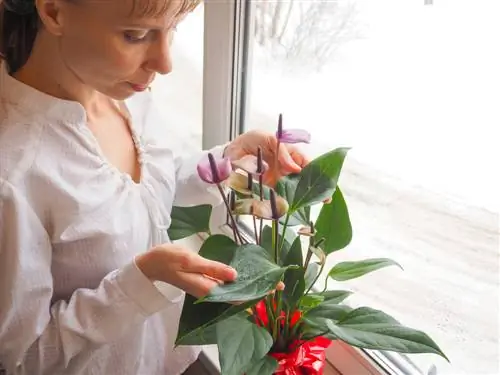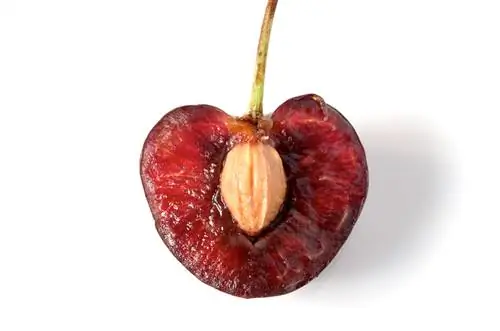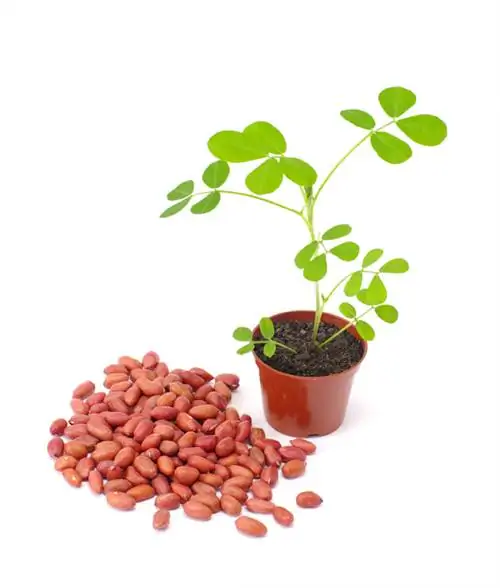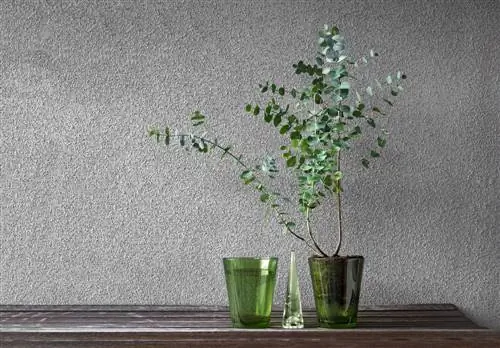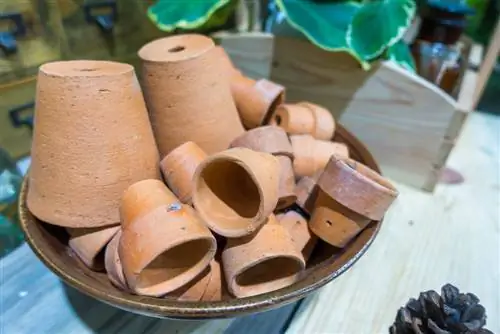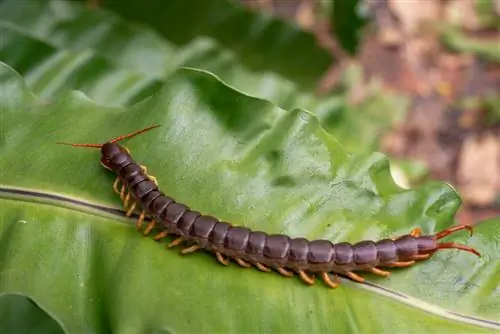- Author admin leonars@hobbygardeners.com.
- Public 2023-12-16 16:46.
- Last modified 2025-01-23 11:22.
When it gets cooler outside, a difficult time begins, and not just for the garden plants. Plants that are cultivated indoors also need an extra dose of attention. In this article you will find out how to care for your houseplants so that they can cope well with the dry heating air and the dwindling light.
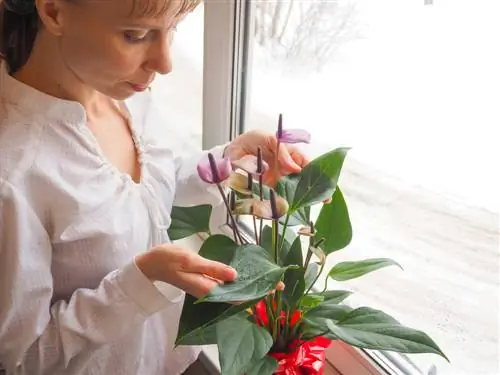
How to care for houseplants in winter?
To optimally care for houseplants in winter, you should place them in a bright, cool location, increase the humidity, water less often and stop fertilizing. It is also important to regularly check for pest infestations and treat the plants if necessary.
The location: bright and not too warm
In general, houseplants should be in the brightest possible place in the winter months. If you cannot guarantee that the plants have enough light, we recommend using special plant lamps (€89.00 on Amazon).
Modern LED lights consume hardly any electricity while providing high luminous efficacy. You can also connect this to a timer so that the lighting time can be regulated as needed.
Keep plants cool
Many houseplants do not tolerate a location directly above the heater. They drop the leaves here and there is a risk of pest infestation. You should therefore overwinter sensitive plants in a slightly heated room.
Increase humidity
Heating air is very dry, and it's not just us humans who feel this. Spray your houseplants daily with low-lime water. This increases the humidity and at the same time reduces the plants' own evaporation.
It is even better to place the flower pots in large saucers filled with clay granules. The material stores water and continuously releases moisture into the environment without the risk of waterlogging. Alternatively, you can use room humidifiers that are hung on the heater or set up an indoor fountain.
Watering and fertilizing
In winter, many houseplants need less water than in the summer months. Therefore, only water when necessary when the top layer of soil feels dry. There is no fertilization at all in winter.
Pests and diseases
- Check your houseplants for pest infestation at least once a week.
- Sticky deposits, pale leaves or fading leaf color in places indicate unwanted guests.
- Place plants with these symptoms away from other plants so that the parasites cannot spread.
- Treat with a suitable preparation.
Tip
You should shower houseplants with lukewarm water once a month in winter. This removes dust and allows the already sparse light to reach the leaves unhindered.

